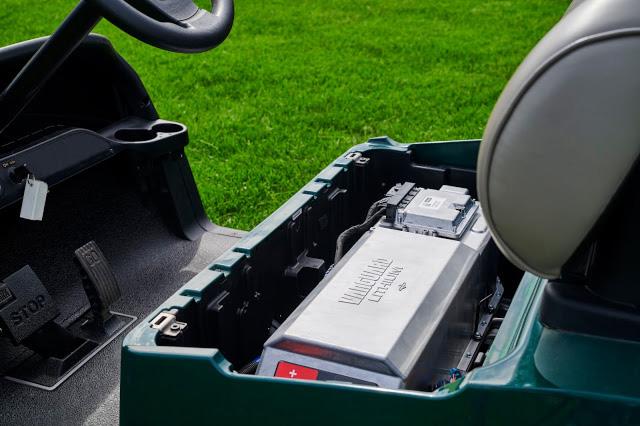Preparing Your Golf Cart for the Colder Seasons: Ten Tips to Winterize Your Vehicle
As the weather gets colder, it’s essential to prepare your golf cart for the winter season. Winterizing your golf cart is essential to keep it in good condition and ensure that it’s ready to roll again once the warmer weather comes back. Neglecting to winterize your golf cart can result in damage or malfunction that may be costly to repair. In this post, we will give you ten tips on how to winterize your golf cart to keep it in excellent condition during the colder months.
Clean and Dry Your Golf Car: Before preparing your golf cart for the winter, it’s essential to have it thoroughly cleaned and dried. Dirt and debris can cause corrosion and other damages to parts of your cart if left unattended. So, make sure to give it a good clean with warm water and detergent, and then dry it off with a soft towel.
Charge and Check the Battery: A fully charged battery is vital for your golf cart’s performance and lifespan. During winter storage, the battery may lose charge, so make sure to charge it before storing it. Also, check the battery for any signs of wear or cracks, and if necessary, replace it to ensures that it’s working correctly during winter storage.
Protect the Tires: Cold weather can reduce the pressure in your golf cart’s tires, which can cause them to become flat or sag. To protect the tires, inflate them to the recommended pressure and then cover them with a tire cover to prevent any moisture buildup.
Check Fluid Levels and Top Off: To keep your golf cart’s engine running smoothly during winter storage, it’s crucial to check the fluid levels and top off as necessary. The fluids that need checking include oil, coolant, and brake fluid. Topping off the fluids ensures that there’s enough liquid to lubricate and protect the critical parts of your golf cart.
Remove the Golf Car’s Spark Plug: Removing the spark plug is vital if you plan to store your golf car for a long time and want to prevent potential damage. It’s a simple process that involves unscrewing the spark plug and spraying oil inside the hole. The oil helps to lubricate the engine and prevent any rust from forming.
Cover Your Golf Cart: It’s essential to keep your golf cart covered during winter storage to prevent any debris or moisture from getting inside. There are several options for covers to choose from, including golf cart covers specifically designed for winter storage, or you can opt for a generic cover that will do the job.
Keep Fuel Fresh: Old gas can cause your golf cart’s engine to stall or malfunction. Therefore, it’s vital to keep the fuel fresh and prevent any buildup of condensation. You can do this by adding a fuel stabilizer to the tank and running the cart for a few minutes to let it circulate through the system.
Park Your Golf Car Indoors: Parking your golf cart indoors during winter storage is the best option to protect it from the elements. If you don’t have access to indoor storage, consider investing in a golf car shelter that offers protection from the sun, wind, and snow, or use a secure golf car storage unit.
Use a Battery Tender: A battery tender is an excellent investment for your golf cart’s battery, especially if you plan to store it for an extended period. The tender keeps the battery charged without overcharging, prolonging its life and ensuring that it’s always ready when you need it.
Stow the Golf Car’s Accessories: Removing any accessories from your golf car, such as a roof or overhang, can help prevent any damage during storage. Ensure that you keep the accessories in a dry and safe place to reuse when you take your golf cart out of storage.
Preparing your golf cart for the colder seasons doesn’t have to be a daunting task. By following these ten tips, you’ll ensure that your golf cart is in excellent condition during winter storage and that it’s ready to hit the greens when the warmer weather returns. Remember to clean and dry your golf cart, charge and check the battery, protect the tires, top off fluid levels, cover your golf cart, keep fuel fresh, park your golf car indoors, use a battery tender, and stow the accessories. Taking these steps will help keep your golf cart in great shape and ensure that it’s ready for action every season!




